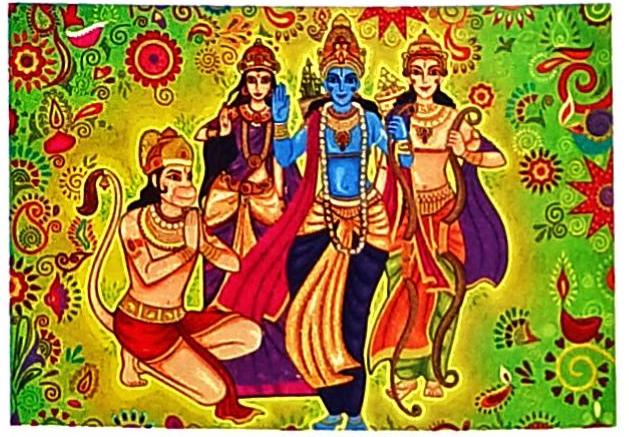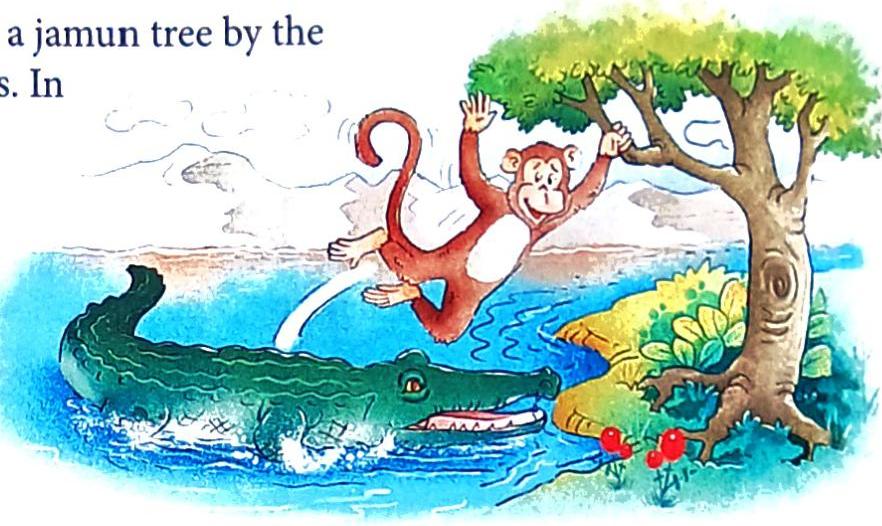Chapter: 11. Literary Heritage Of India
Literary Heritage of India
Let’s learn about…
The famous epics of India. The Panchatantra and Jataka Tales.
Understanding Literary Heritage
Literary heritage means stories, songs, and poems passed down to us by our ancestors. The Ramayana, the Mahabharata, the Upanishads, and the Vedas make up the literary heritage of India. Key Terms
Literary heritage: Stories, songs, and poems passed down from ancestors. Epics: Very long poems, often telling tales of heroes and gods. Moral stories: Stories that teach a lesson or a value about life.
Epics of India
India has two very old and famous epics:
These are among the longest epic poems in the world.
The Ramayana
The Ramayana is an ancient story. It tells the tale of Prince Rama of Kosala. The story focuses on his struggle to save his wife, Sita, from the wicked king of Lanka, Ravana. It was originally written in Sanskrit by Valmiki. Later, it was written in many other Indian languages. It contains the teachings of ancient Hindu sages (wise men).
A scene from the Ramayana The Mahabharata
The Mahabharata is the longest epic in the world. It was written by Ved Vyas. It tells the story of the kingdom of Kurus. Two family branches, the Kauravas and the Pandavas, waged a fierce war at Kurukshetra. The Bhagavad Gita is a part of this epic. In the Bhagavad Gita, Lord Krishna gives advice to Arjuna on his duties as a warrior. The epic also includes many other stories.
Scenes from the Mahabharata FactPedia
The epics talk about God and His teachings. They help students learn the moral values of life.
Indian Moral Stories: Jataka Tales and Panchatantra
The Jataka Tales and the Panchatantra are collections of Indian moral stories. The characters in these stories are presented in both human and animal form. The Jataka Tales tell stories about Buddha. The Panchatantra was told by Pandit Vishnu Sharma to princes to teach them wisdom. The Lion and the Wolf (A Jataka Tale)
A young lion met a wolf in the jungle. The wolf, fearing the lion, cleverly offered to serve the lion’s family and was taken to the den, despite the lion’s parents’ warnings not to trust a wolf. After a few days, the wolf suggested horse meat and took the lion to a pond where ponies drank. The lion started killing the king’s ponies for meat, ignoring his parents’ warnings. One day, while the lion was trying to catch another pony, the king’s archer shot an arrow at him. The lion yelled for help, but the wolf ran away, abandoning the young lion. Moral of the story: You should be careful and listen to your parents. The Monkey and the Crocodile (A Panchatantra Story)
A monkey lived on a jamun tree by a river and befriended a crocodile, sharing the juicy jamuns. The crocodile told his wife about the monkey and the sweet fruit. One day, his wife pretended to be ill and demanded to eat only the monkey’s heart. The next day, the crocodile invited the monkey to meet his wife and carried him on his back across the river. Midstream, the crocodile revealed his wife’s demand. The clever monkey quickly said he had left his heart on the jamun tree and they needed to go back. As soon as they reached the bank, the monkey leaped back onto the tree. The monkey thanked the crocodile for his honesty but stated he could no longer trust him. Green Earth
Many stories, including those from the Jataka Tales and Panchatantra, often contain messages about living wisely and respecting nature. It is a good idea to explore these collections to find stories that talk about the conservation of the environment.
In a Nutshell
Literary heritage means stories, poems, and songs left behind by our ancestors. The Ramayana is the story of Prince Rama. The Mahabharata is the longest epic about two families, the Kauravas and Pandavas. The Panchatantra was told by Pandit Vishnu Sharma to the princes. The Jataka Tales narrate stories about the life of Buddha. Both the Jataka Tales and the Panchatantra stories have a moral or a lesson.
 Self Study
Self Study
A scene from the Ramayana
A scene from the Ramayana

Scenes from the Mahabharata
Scenes from the Mahabharata





